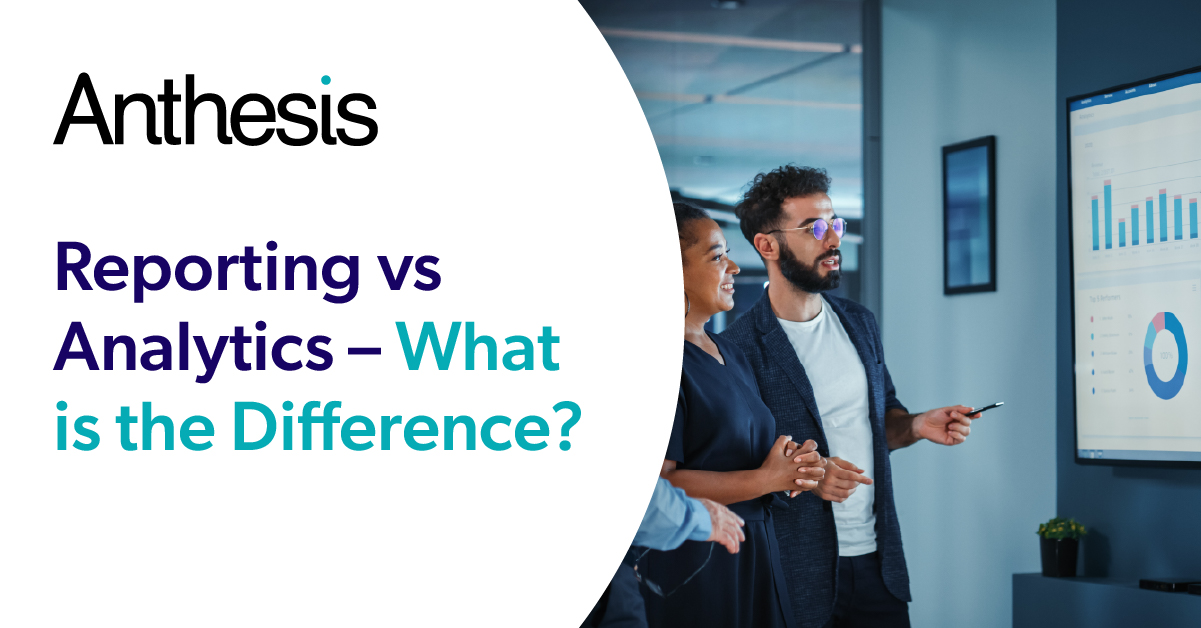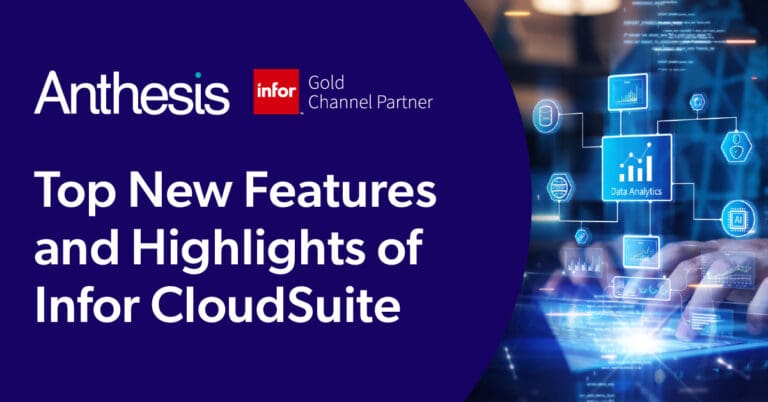Modern companies are sitting on a gold mine of data. Tapping into this data is essential to provide actionable insight that helps to improve operational efficiency, increase margins, drive innovation, and remain competitive. While reporting can give great operational benefits the correct application of Analytics adds further strategic benefits.
Unlocking the value of your data.
Before we dive into the details, first let us explore what the modern world of data looks like.
Worldwide, the volume of data is growing exponentially, influenced by factors such as advancements in technology, increased internet usage, the rise of IoT (Internet of Things) devices, and the expansion of digital services. This has led to cross-industry challenges in how to manage such enormous volumes and insatiable demand for data-literate resources.
The International Data Corporation (IDC) estimates that by 2025 the sum of all data in the world will be in the order of 175 Zettabytes (one Zettabyte is 10^21 bytes). Most of that data will be unstructured, and only about 10% will be stored (Figure 1). Even less will be analysed.
It is expected that the amount of data created over the next 3 years will be more than the data created over the past 30 years, which will brings it’s own challenges, especially as there is an ongoing shift in the world from structured to unstructured data, as reported by IDC. Another report states that between 80% and 90% of the world’s data is unstructured, with about 90% of it having been produced over the last two years alone. Currently only about 0.5% of that data is analysed.
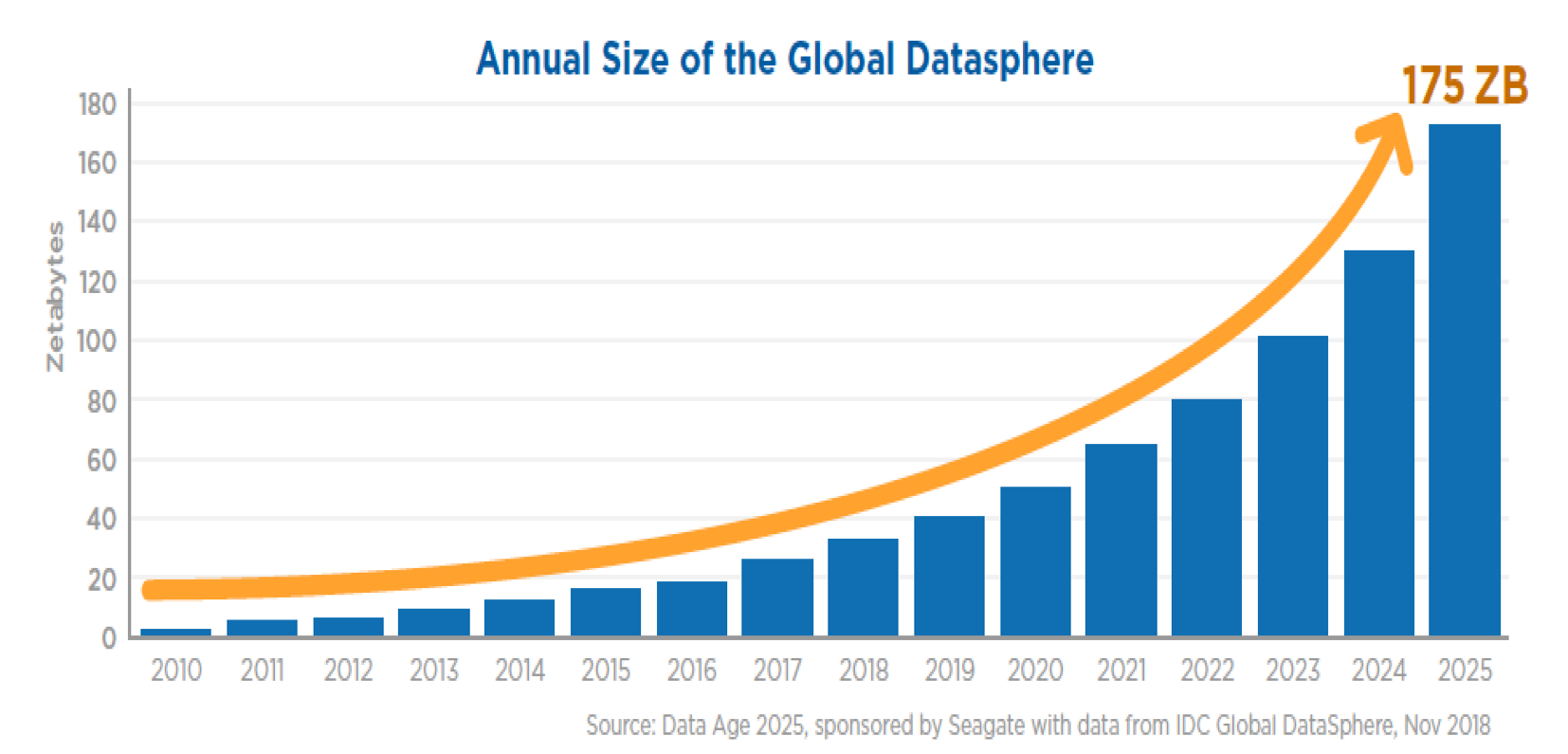
(Figure 1)
What do we mean by “Unstructured data”?
Unstructured data, such as photos taken during a quality inspection or sensor readings from machines, are all valuable data points that help form a better picture of how a company is performing. They help explain “why” something has happened and can be used to suggest actions to take. However, this data often only forms part of the bigger picture, so it needs to be joined with structured data so that users can make informed data-driven decisions.
Where to start?
Companies routinely need to leverage their data assets, but often struggle to know where to begin. Below are the 4 stages that we see companies typically go through as their data journey matures:
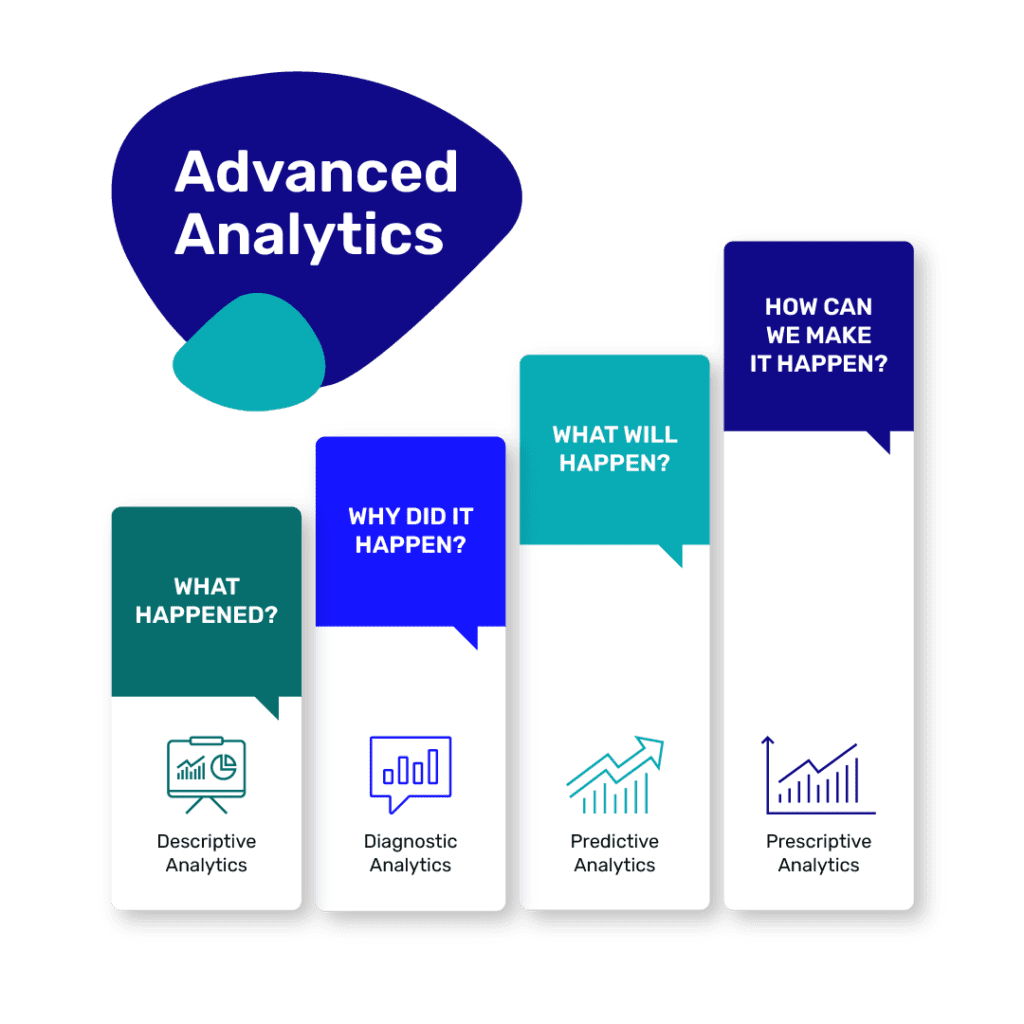
1. Descriptive Analytics – What Happened:
Focus on understanding and summarising historical data to gain insights into past events and trends.
- Provides a retrospective view of data
- Answers questions like “What happened?” and “What were the key trends or patterns?”
- Involves techniques such as data aggregation, summarisation, and visualisation
2. Diagnostic Analytics – Why Did It Happen:
Delve deeper into data to identify the reasons behind historical events or trends.
- Seek to understand the root causes of specific outcomes
- Answers questions like “Why did it happen?” and “What factors influenced the observed patterns?”
- Involves exploratory data analysis, correlation analysis, and causal inference
3. Predictive Analytics – What Will Happen:
Helping to forecast future outcomes based on historical data and patterns.
- Utilises statistical algorithms and machine learning models
- Answers questions like “What will happen in the future?” and “What are the likely future trends or events?”
- Enables proactive decision-making and risk assessment
4. Prescriptive Analytics – How Can We Make It Happen:
Going beyond predictions to recommend actions for optimising outcomes.
- Provides actionable insights and recommendations
- Answers questions like “How can we make a desired outcome happen?” and “What actions should be taken to achieve specific goals?”
- Involves optimisation algorithms, decision analysis, and simulations
Reporting vs Analytics
So, what is the difference between reporting and analytics, and why should companies be aware of how to apply each approach?
Reporting is Operational
Reporting allows you to see what has happened in the past, based on historic data.
It allows you to answer questions like:
- What just happened?
- What is the current status of my order?
- Is the product currently in stock?
You do not need to analyse many months’ worth of data for these types of questions.
Analytics is Strategic
Analytics explains why something is happening, which then informs future decisions.
This allows you to answer questions like:
- Who are my top performing customers year-to-date?
- Are we making more sales this period versus same period last year?
- How many orders are still open for this year?
- Which vertical should we increase our marketing spend?
- Who on our non-buyer report should Sales speak to?
You do not need real-time data “what just happened” analysis for these types of questions.
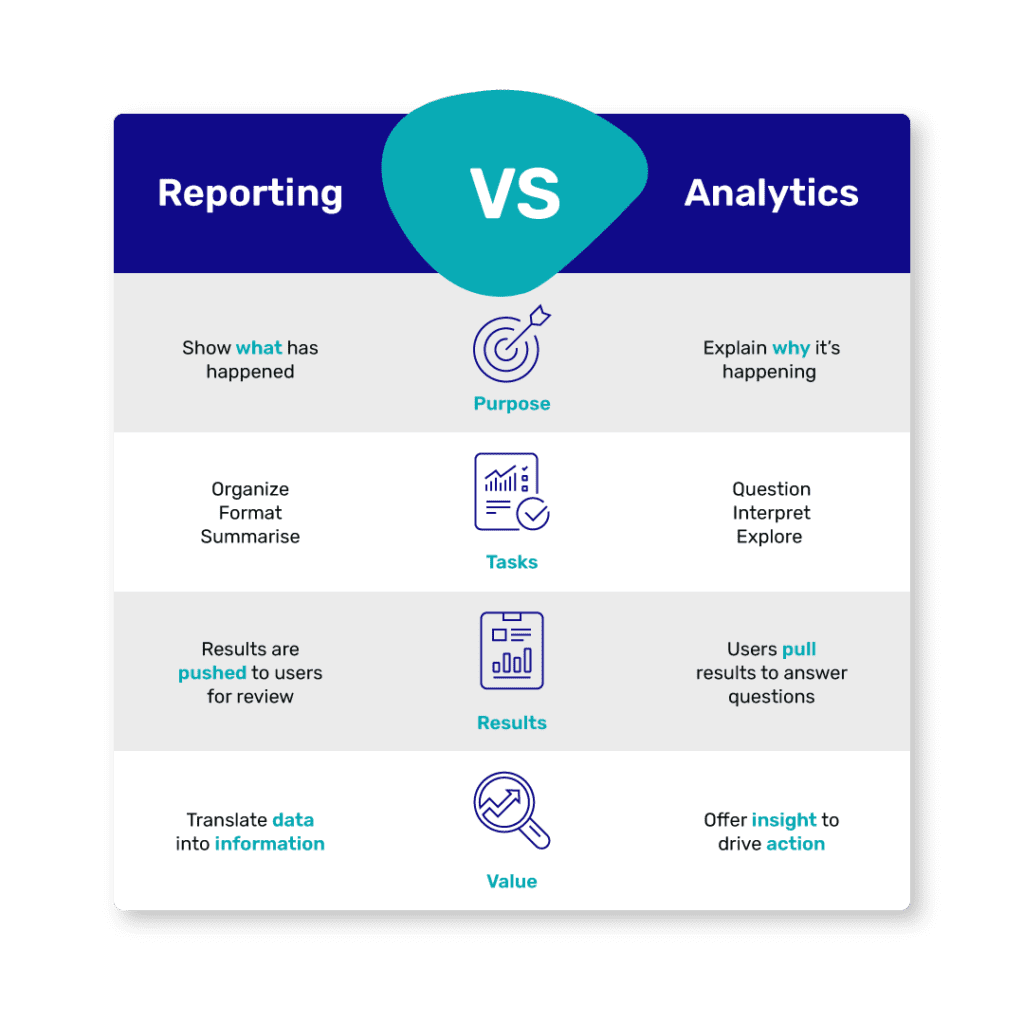
Both are important, and understanding some of these differences as well as knowing when and where to apply different approaches is the key to unlocking the valuable data and enables you to move from being reactive to becoming proactive.
How we can help you.
Our experience tells us that to run a successful data project, it is important to balance technology with business processes and the people involved to ensure new ways of working are adopted.
Anthesis has extensive experience working with companies like yours and can help you unlock the value of your data, from ERP through to reporting and analytics. We are the only partner of IFS and Infor with an in-house data analytics team. This uniquely specialised division is designed to help you unlock the powerful functionality of the business analytics tools connected to your ERP software.
Whether you are using the standard analytics tools within your IFS or Infor ERP solution, or an integrated capability such as Power BI, our team can help you understand how to get the most out of the tools designed to untangle your data.
Click here to find out more about our dedicated in-house Anthesis Analytics division.
